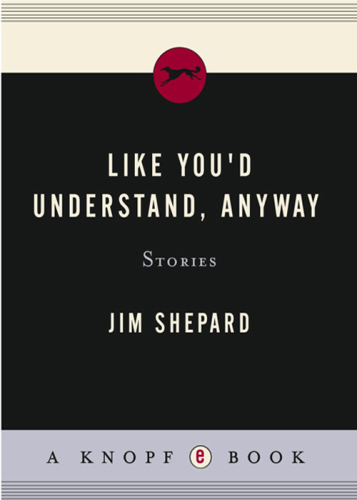
Like You'd Understand, Anyway
Stories
کتاب های مرتبط
- اطلاعات
- نقد و بررسی
- دیدگاه کاربران
نقد و بررسی

December 31, 2007
Following the novel Project X
and Love and Hydrogen: New and Selected Stories
, Shepard's new collection takes in landscapes as diverse as 1986 Chernobyl in “The Zero Meter Diving Team,†to 1840s down under in “The First South Central Australian Expedition.†It's clear that Shepard has done his research in these 11 first-person tales—be it on Alaskan tidal waves for a story about a man contemplating a vasectomy while reliving a childhood tragedy in “Pleasure Boating in Lituya Bay,†or Sherpas and the Chang Tang tundra in “Ancestral Legacies,†and his precision gives the poignant longing and human emotion of the stories room to resonate. Save for “Eros 7,†about a lovelorn Soviet cosmonaut and set during the U.S.-Russia space race, all the stories are told by men, often with few female characters. At the core, each is essentially an exploration of familial relationships between men—be it the ill-fated trio of brothers working at the nuclear reactor or the unhappy adolescent camper calling home to find out about his mentally disturbed younger brother in “Courtesy for Beginners.†Shepard's far-flung explorations get very close to the male heart.

September 1, 2007
In his latest offering, veteran fiction writer Shepard ("Project X") poses some interesting questions about the very nature of short fiction. The 11 tightly written pieces often take place in a historical setting. But whether they feature Chernobyl on the eve of the meltdown or a track into the inhospitable Australian interior, these stories generate tension that revolves around the movements of their characters. A time-honored tradition of fiction writing is that the lead paragraph must be among the strongest, and several pieces here feature openings that could stand as short stories in their own right. But rather than building tension to a combustible crescendo or opting for the open-ended terminus of the postmodern novel, Shepard gently diffuses the energy he's taken such pains to accumulate. In this sense, his fiction admits a modern truth: that the buildup contributes more to a story than its eventual "resolution." Recommended for public and academic libraries.Chris Pusateri, Jefferson Cty. P.L., Lakewood, CO
Copyright 2007 Library Journal, LLC Used with permission.

























دیدگاه کاربران